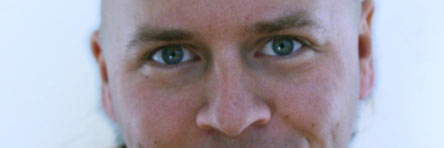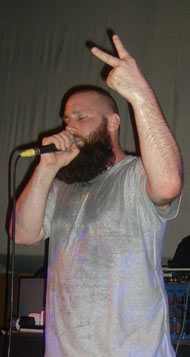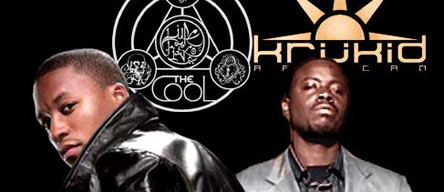Weekend Brainfood, Feb 23rd 2008
Posted by Justin Boland on Feb 23, 2008 | 0 Comments
?uestlove Gives a Master Class
I subscribe to two news RSS feeds: Bruce Houghton’s Hypebot and Clyde Smith’s Pro Hip Hop. I’d like to thank Clyde for the heads up on this master class: Roots drummer ?uestlove giving a very detailed and intelligent interview to Derek Jennings over at IndyWeek.com . Clyde has some excellent highlights on his blog-read them here-but my personal favorite passage was this:
When we were out there on The Chronic battlefield, from “92 to “97, me and Rich [The Roots’ longtime manager] were racking our brains on how to escape from the pack, how to matter. A lot of people accuse of us over-thinking. And that’s OK. But we looked at every successful artist. We pored over charts in industry magazines going back decades, looking for commonality. And what we found was that anyone who was successful was not isolated. Besides a couple of one-hit wonders in the “60s (there was no “movement’ behind “Tiptoe Through the Tulips” or “Monstermash”), every big act was part of a larger movement. The Beatles were by no means by themselves. The British Invasion also meant that you had the Stones, the Kinks, The Who. Likewise with hard rock-Deep Purple, Led Zeppelin-or the Philadelphia sound-Billy Paul, Harold Melvin and the Bluenotes, the Three Degrees.
Once Illadeph (Illadelphia Halflife, The Roots’ third studio release) came out, me and Rich were like, we’ve got to get a movement. We weren’t trying to be the Rudolph the Rednosed Reindeer of this. So around “97 or “98, when we went to Geffen, we told them upfront that the only way this was gonna work was if we could be like Noah and bring a bunch of other complementary artists on board with us. We told them about Common. Blackstar. We tried to get Slum Village. Instead, they gave the late J Dilla a label. The only person that Geffen was lukewarm on was Jill [Scott].
Jensen: Yeah. They really played themselves on that one.
?uestlove: We told them you’ve got to help create this movement for us. It happened, but then somehow we all forgot that we needed each other. All the sudden it became about ‘This person sounds like me.’ That type of thing. Then the isolation set in. I can’t force people at gunpoint to organize like we used to, like when you’d go to Electric Lady [famed recording studio in New York that was home to the recording of some of the best music in history, and which ?uestlove and his camp used as a muse] and Mos, Com, Kweli, Erykah, D’ would be there and, Dilla would be playing brand new records. We used to do that a lot. It was like an auction for Dilla beats. The night we created “Ghetto Heaven” was the first really heated argument. Common originally had [the track to] “Chicken Grease,” and D’Angelo had “Ghetto Heaven.” They ended up trading. Somehow we lost that.

Derek Sivers of CD Baby: Pure Inspiration
Berklee’s newsletter did an in-depth interview with Derek Sivers that’s worth reading straight through. Here’s the link. My favorite cut:
Are you operating on the assumption that the CD will remain an important format?
Yes, but you can tell that CDs will go away someday. Our physical CD sales are 35 percent higher than they were at this time last year. Ten percent of music fans buy all of their music as digital files, while 90 percent still get their music on CD. It surprises me when I hear a musician say, “I’m not going to make CDs anymore; I’m going to be digital only.” It makes me want to ask, “Are you at the point in your career where you can shut out 90 percent of your audience?” It’s still worth it to make a CD. Artists have so much more sales potential if they have both formats available.Can you describe your plans for growing the company internationally?
I envision international branches of the company that will allow a musician in Japan to sign up with CD Baby online in Japanese, then mail his or her CDs to our person in Tokyo. A day later, the disc is up on the site. Someone in Brazil reads about it on the site in Portuguese, hears the album, likes it, and orders it. We plan to have local warehouses in various locations that ship internationally, just like we do in Portland.
Sage Francis Sweats Gems About DIY Touring
From the best-named hip hop site I’ve heard of, Baller Status Dot Com:
 Ballerstatus.com: I want to talk about how you broke into the industry and the pretty unique DIY approach to how you made a name for yourself.
Ballerstatus.com: I want to talk about how you broke into the industry and the pretty unique DIY approach to how you made a name for yourself.
Sage Francis: Well, it’s been (laughs) a long strange trip, to quote another one of my songs. The hip-hop I grew up on and the hip-hop I think most people are familiar with is big money driven. It’s financed and it’s got big label names behind it. Being an MC from Providence, Rhode Island with little to no connections to the industry-and this industry being so incestuous, and nepotistic-it seemed impossible to make any headway, or become known outside my tiny area. But, I just went at it. I was just making music for myself, my friends, whoever would listen.
I stumbled upon the hardcore scene in the mid-90s, and they showed me the way as far as f—- waiting for a label or anyone else to put you on. If you want to make music, and you believe in it strong enough, you really just need to take the bull by the horns and push it and do it yourself. It takes a lot of work, a lot of artists don’t want to put in the extra work, because it takes a significant amount of elbow grease.
Having some business savvy and just investing in yourself, it’s financially scary for a lot of people, but it worked out. I made as many tapes as I could afford and sold them, I couldn’t make enough. CD-R technology came and I used my radio station to burn that sh—, always trying to find ways to cut corners as far as expenses go, while still making profits on my investments in myself. It was a snowball effect; it got bigger and bigger and bigger.
Thankfully, free file sharing came about via Napster online, and that’s how without any big money marketing behind me, I was able to reach all corners of the world. All of a sudden people in Sweden and California and Canada, everywhere, people were able to access my music and share with their friends. Then my name became more and more popular. Then I was able to do shows in all these various areas.
Ballerstatus.com: You’re the only rapper I have ever seen tour solo, without even a DJ.
Sage Francis: What’s good is, I do these big tours and I usually like to change the stage set up. Sometimes a full band, sometimes a DJ and sometimes it’s just me and a CD player. If I’m able to bring everyone together and get them caught up with what I’m trying to do in the stage presentation, that’s great. I do a lot of one offs when I’m not on tour, and the last couple years have actually been all about random one off performances. I just go out with a show disk and perform whatever I feel like performing. I don’t have to bring anyone up to date, or losing someone in the mix of where I go on stage, because it’s real, my stage show. I turn into a loose cannon and there is no way of telling what mood I’ll be in or where I’ll want to go, what kind of song fits that.
Whatever’s appropriate, I get to decide right at that moment, and that’s good for me. We’re about to tour for like two months straight and I’ll have a full band behind me. We got to come up with a set list that, I don’t know, works. The freedom in being involved in being able to perform just by myself, that scares the sh— out of a lot of rappers and performers, who just, for some reason, can’t get on stage and fill space energy wise. I’ve never had a problem with that, probably due to my spoken word past. Just being able to be on stage, without music, and still be able to rock the crowd, I’ve just built up that confidence to the point where I know I can carry a whole show just by myself, as well as doing it with a full band. ]It’s a real good position to be in, and I’m happy it’s worked out that way, because f—- if I get a show in Taiwan tomorrow I can just fly out.
Krukid: VIDEO FLYERS FOR SHOWS
Is he the first to think of this? Beats me, but it’s the first time I’ve seen it and I think it’s f’ing genius. Krukid, an Illinois-based rapper I’ve mentioned before because of his Rawkus 50 affiliation, has been promoting his next show with a YouTube video. It’s very nicely done, and like all of the Krukid promotion I’ve seen, it’s got a unified look and feel to it that’s been consistent in all formats.
Although I’ve written an article critical of the Rawkus 50 business model, don’t mistake that for criticism of their roster. Krukid, like Atllas and Protoman, are worth checking out as examples of Using The Internets Right.

